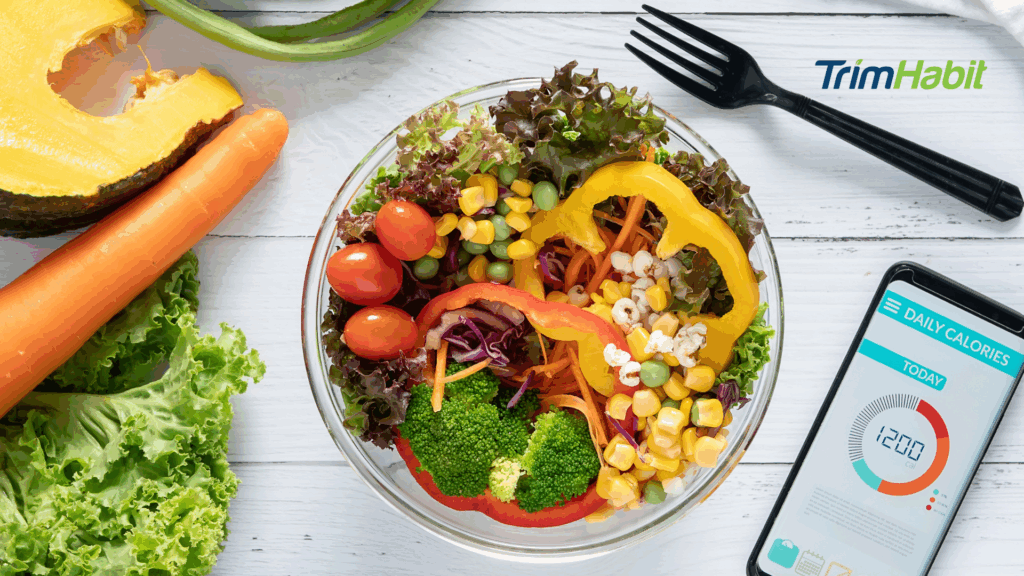Intermittent fasting is widely known today as a method people use to lose weight. However, it can raise questions, especially when long periods without food are involved.
Many wonder how to support their bodies during fasting periods and whether supplements are necessary.
This leads to the common question: Do you need supplements while practicing intermittent fasting?
The answer to that question isn’t one-size-fits-all. Let’s dive into the factors determining whether supplements are necessary during intermittent fasting.
Understanding Intermittent Fasting
Intermittent fasting is a structured eating pattern involving designated fasting periods and eating windows. Rather than focusing on specific foods, this method emphasizes when you eat, often leading to reduced food intake.
Consuming fewer calories during fasting periods prompts the body to use stored fat for energy, aiding weight loss and improving metabolic health. Caloric restriction from this approach can also promote repair processes and deliver other health benefits, such as improved blood sugar regulation and better energy balance1,2,3.
Common Types Of Intermittent Fasting Methods
- 16/8 Method: Involves daily 16-hour fasting periods paired with an 8-hour eating window, naturally encouraging fewer calories and supporting weight loss.
- 5:2 Diet: Focuses on five days of normal calorie intake and two days with caloric restriction (500-600 calories).
- Eat-Stop-Eat: Incorporates one or two full 24-hour fasting periods weekly, reducing calorie intake.
- Alternate-Day Fasting: Alternates between a day of unrestricted eating and a day of fasting or minimal calorie consumption.
How Intermittent Fasting Affects Your Body
Intermittent fasting triggers a series of changes in your body to adapt to periods without food. During fasting, insulin levels drop, making it easier for your body to burn stored fat for energy.
Growth hormone increases, which supports fat burning and muscle preservation. Your cells also start a process called autophagy, clearing out damaged components and improving cellular repair.
Over time, fasting can enhance metabolic health, improve blood sugar control, and promote fat loss, while giving your digestive system a break to reset. It’s a natural rhythm your body is built to handle.
Myth-Busting: Do You Need Supplements While Practicing Intermittent Fasting?
Supplements during intermittent fasting can be helpful but aren’t always necessary. If you maintain a balanced diet during eating periods, you might get all the nutrients you need. However, fasting can sometimes limit intake of essential vitamins and minerals, especially if your meals are not nutrient-dense.
For instance, if you’re following a more restrictive fasting schedule, you might find it challenging to consume enough calories or a wide range of nutrients within your eating window. In these cases, supplements can help fill in the gaps, ensuring you’re getting what your body needs to function during fasting periods.
It’s important to note that while intermittent fasting offers many benefits, it’s not a cure-all. Without proper nutrition, fasting can lead to deficiencies that impact energy levels, muscle mass, and your health.
The key is to strike a balance. Supplements can support your fasting practice, but they should complement, not replace, a well-rounded diet.
Types Of Supplements To Consider
Whether you need supplements while practicing intermittent fasting depends on your dietary habits, lifestyle, and health. Here are some supplements you might need, but make sure to check with your doctor for proper consumption and to ensure they fit your individual needs:
- Electrolytes
- Fasting reduces insulin levels, which can lead to increased sodium and water loss. This can result in electrolyte imbalances, causing fatigue, headaches, or muscle cramps.
- Vitamin D
- Vitamin D is essential for bone health and immunity. Supplementation may be beneficial if you have limited sun exposure or your diet lacks fortified foods. Choose vitamin D3 for better absorption.
- Omega-3 Fatty Acids
- If fatty fish like salmon, mackerel, or sardines are not a regular part of your diet, omega-3 supplements can provide essential benefits. They help reduce inflammation, promote heart health, and support brain function. Choose high-quality fish oil supplements or algae-based options for a plant-friendly alternative.
- Fiber
- Short eating windows can reduce your intake of fiber-rich foods like fruits, vegetables, and whole grains. If digestion slows or you experience constipation, a soluble fiber supplement (like psyllium husk) can help.
- B Vitamins
- B vitamins, especially B12, are crucial for energy production and maintaining a healthy nervous system. Vegetarians, vegans, or those with limited food variety during fasting windows may benefit from a B-complex supplement.
- Multivitamins
- A general multivitamin can fill minor gaps in your diet, but it’s not a substitute for balanced meals. Use it as a safety net rather than a primary nutrient source.
- Probiotics
- Fasting may alter gut bacteria. Probiotic supplements or fermented foods like yogurt, kimchi, and sauerkraut can support gut health.
Additional Considerations
- Workout Supplements
- If you exercise while fasting, branched-chain amino acids (BCAAs) or electrolytes can help preserve lean muscle mass, reduce muscle breakdown, and support hydration during workouts.
- Caffeine
- Black coffee or tea can enhance focus and energy during fasting without breaking your fast.
- Protein
- If muscle maintenance is a priority, consider protein powder during eating windows to ensure adequate intake.
Who Is More Likely To Need Supplements
Certain groups of people are more likely to need supplements when fasting due to dietary restrictions, health conditions, or increased nutrient demands.
Those with Restive Diets
Individuals following specific diets, such as vegans or vegetarians, may require supplements to meet their nutritional needs. For example, vitamin B12, omega-3 fatty acids, iron, and zinc are commonly lacking in plant-based diets. Similarly, people on low-carb or ketogenic diets might face a higher risk of electrolyte imbalances, particularly sodium, potassium, and magnesium.
Active or Athletic Individuals
People who maintain high levels of physical activity while fasting may deplete electrolytes more rapidly due to sweating. These individuals may also have increased protein requirements to support muscle maintenance, making protein supplements or branched-chain amino acids (BCAAs) beneficial.
Those with Health Conditions
People with specific health conditions, such as anemia or osteoporosis, may need supplements to address their unique needs. For example, those with anemia might benefit from iron supplements, while individuals concerned about bone health could require vitamin D and calcium.
People with Limited Eating Windows
Fasting schedules that involve very short eating periods, such as the OMAD (one meal a day) method, can make it challenging to consume a nutrient-dense diet. These individuals may miss out on essential vitamins and minerals, increasing the likelihood of needing supplements.
Older Adults
As people age, their bodies often absorb nutrients less efficiently. Older adults might require supplementation for nutrients like vitamin B12, calcium, and magnesium, especially if fasting further limits their food intake.
People with High Stress Levels
Chronic stress can deplete the body of certain nutrients, such as magnesium and B vitamins. Fasting may intensify this, making supplementation helpful for stress management and energy metabolism.
Those New to Fasting
Beginners transitioning into a fasting routine might experience side effects like fatigue, headaches, or muscle cramps. These symptoms are often due to electrolyte imbalances or insufficient nutrient intake, which supplements like magnesium, potassium, or sodium can help address.
Healthy Supplementing Strategies For Intermittent Fasting
Supplements can complement intermittent fasting when used smartly, focusing on specific needs and timing to enhance the fasting experience. To manage supplements effectively, here are some key pointers:
Stay Compatible with Fasting
During fasting, choose options like electrolytes, magnesium, or caffeine (plain tea or coffee) that won’t trigger insulin responses. These can help with hydration, energy, and mental clarity.
Leverage Eating Window
Use your eating periods to take supplements that need food for absorption. Fat-soluble vitamins, iron, and calcium pair well with nutrient-rich meals to enhance their uptake and effectiveness.
Target Nutrient Loss
Minerals like sodium, potassium, and magnesium can deplete faster during fasting. Replenish these to reduce muscle cramps, headaches, and fatigue using mineral water, broths, or supplements.
Fill Potential Gaps
If limited meal timing makes it harder to get all necessary nutrients, focus on items like omega-3s for heart health, probiotics for digestion, or multivitamins for broader coverage.
Adjust to Prolonged Fasting
Extended fasting periods may require extra care to maintain electrolyte balance or address symptoms like weakness. Supplements like trace minerals or small doses of collagen can provide subtle support without breaking your fast.
Keep Your Routine Focused
Choose supplements tailored to your needs and avoid unnecessary additions. Overcomplicating supplementation can distract from the simplicity and benefits of fasting.
Monitor Your Experience
Pay attention to energy levels, digestion, and recovery during fasting. Persistent fatigue or other challenges might indicate adjustments are needed in your supplementation strategy.
Choose Quality Products
Select supplements with clean, reliable ingredients and avoid those containing additives or unnecessary fillers to stay aligned with the simplicity of fasting.
Conclusion
When it comes to your fasting regimen, the decision to use supplements depends on your individual needs. While intermittent fasting naturally encourages you to stop eating during certain periods and consume fewer calories, supplements can be useful in filling any gaps that might arise, especially if you’re fasting for extended hours or following a more restrictive approach.
Remember, the benefits of intermittent fasting extend beyond just weight loss, improvements in metabolism and health, can come into play too. Ultimately, it’s about listening to your body and figuring out what works best for you.









